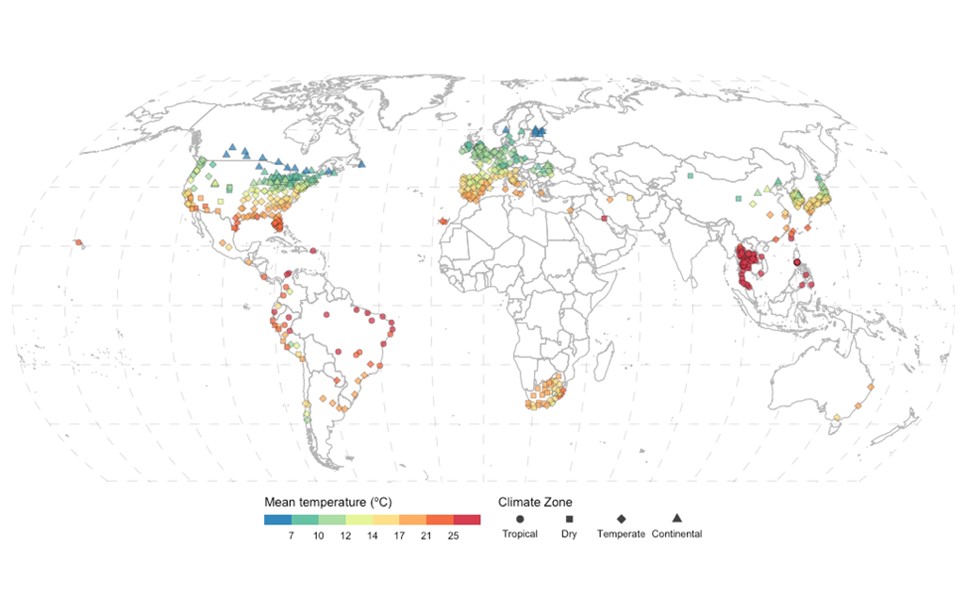2024-02-06 カロリンスカ研究所(KI)
◆約20万人の新生児を対象に行われたこの研究は、JAMA誌に掲載されました。妊婦がワクチンを接種した場合、新生児にはリスクが増加しないばかりか、重篤な合併症、死亡を含む、より少ない合併症のリスクが低下していることが示されました。
<関連情報>
- https://news.ki.se/covid-vaccine-for-pregnant-women-safe-for-newborn-infants
- https://jamanetwork.com/journals/jama/fullarticle/2814537
妊娠中のCOVID-19ワクチン接種後の新生児転帰 Neonatal Outcomes After COVID-19 Vaccination in Pregnancy
Mikael Norman, MD, PhD; Maria C. Magnus, PhD; Jonas Söderling, PhD; et al
JAMA Published:February 6, 2024
DOI:10.1001/jama.2023.26945

Key Points
Question Does exposure to mRNA COVID-19 vaccination during pregnancy increase the risk of adverse events in newborn infants?
Findings In this population-based cohort study from Sweden and Norway that included 94 303 infants exposed to COVID-19 vaccination during pregnancy and 102 167 control infants born between June 2021 and January 2023, vaccination during pregnancy was associated with lower odds of neonatal intracranial hemorrhage, cerebral ischemia and hypoxic-ischemic encephalopathy, and neonatal mortality.
Meaning In this large population-based study, vaccination of pregnant individuals with mRNA COVID-19 vaccines was not associated with increased risks of neonatal adverse events in their infants.
Abstract
Importance Better knowledge about neonatal adverse events after COVID-19 vaccination during pregnancy could help address concerns about vaccine safety.
Objective To evaluate the risks of neonatal adverse events after exposure to COVID-19 vaccination during pregnancy.
Design, Setting, and Participants Population-based cohort study including all infants in Sweden and Norway born from June 2021 to January 2023. Unique personal identity numbers were used to link individual information from different national registers.
Exposure Administration of any mRNA vaccine against COVID-19 during pregnancy, irrespective of previous vaccination, number of doses during pregnancy, or vaccine manufacturer.
Main Outcomes and Measures Outcomes were neonatal conditions with bleeding/thrombosis or inflammation/infection; disorders of the central nervous system; circulatory, respiratory, or gastrointestinal problems; and neonatal mortality. Statistical methods included logistic regression adjusted for characteristics of the pregnant individuals, with additional restricted and stratified analyses.
Results Of 196 470 newborn infants included (51.3% male, 93.8% born at term, 62.5% born in Sweden), 94 303 (48.0%) were exposed to COVID-19 vaccination during pregnancy. Exposed infants exhibited no increased odds of adverse neonatal outcomes, and they exhibited lower odds for neonatal nontraumatic intracranial hemorrhage (event rate, 1.7 vs 3.2/1000; adjusted odds ratio [aOR], 0.78 [95% CI, 0.61-0.99]), hypoxic-ischemic encephalopathy (1.8 vs 2.7/1000; aOR, 0.73 [95% CI, 0.55-0.96]), and neonatal mortality (0.9 vs 1.8/1000; aOR, 0.68 [95% CI, 0.50-0.91]). Subgroup analyses found a similar association between vaccination during pregnancy and lower neonatal mortality; subgroups were restricted to infants delivered by individuals unvaccinated before pregnancy, individuals vaccinated before pregnancy, individuals vaccinated after a general recommendation of vaccination during pregnancy was issued, and individuals without COVID-19 infection during pregnancy. Analyses restricted to term infants, singleton births, or infants without birth defects yielded similar results. Stratifying the analysis by vaccine manufacturer did not attenuate the association between vaccination and low neonatal mortality.
Conclusions and Relevance In this large population-based study, vaccination of pregnant individuals with mRNA COVID-19 vaccines was not associated with increased risks of neonatal adverse events in their infants.


